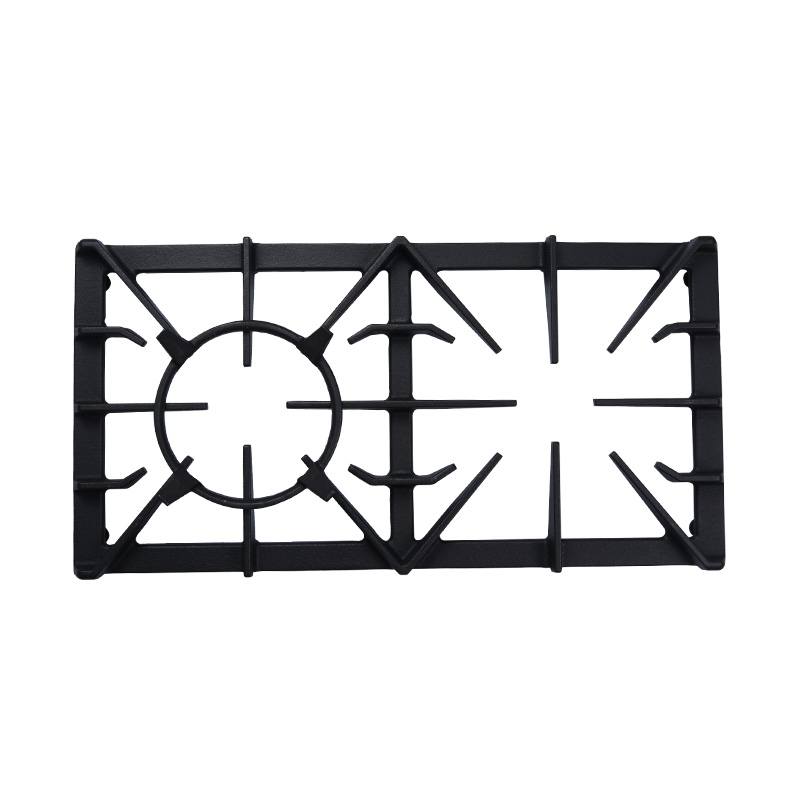Avoid Using Soap: The seasoning on cast iron is a layer of polymerized oil that has bonded to the surface through repeated heating. This layer creates a natural non-stick surface and provides protection against rust. Soap, particularly strong detergents, can strip away this seasoning, leading to a duller surface and increased susceptibility to rust. Instead of soap, clean the baking sheet with hot water immediately after use. The heat from the water helps to loosen any stuck-on food, while the absence of soap ensures the seasoning remains intact. For tougher residues, use a small amount of salt as a gentle abrasive, which also preserves the seasoning.
Use Minimal Water: Cast iron is highly susceptible to rust if exposed to excessive moisture. Soaking or leaving the baking sheet wet for extended periods can lead to rust spots, which can be difficult to remove without damaging the seasoning. When cleaning, use just enough water to remove food particles. After rinsing, promptly dry the sheet to prevent any moisture from settling on the surface. Avoid leaving the sheet in a sink filled with water, and never place it in a dishwasher, where prolonged exposure to water and detergents can strip the seasoning.
Ensure Thorough Drying: Residual moisture is the enemy of cast iron. Even a small amount left on the surface can lead to rusting, which not only damages the appearance but also compromises the performance of the baking sheet. After washing, immediately dry the sheet with a clean, lint-free towel. For added protection, place the baking sheet on a stovetop burner set to low heat for a few minutes. This will evaporate any remaining moisture and help to further seal the seasoning.
Reapply a Thin Layer of Oil: Regular application of oil after cleaning is crucial for maintaining the seasoning. The oil acts as a protective barrier against moisture and oxygen, both of which can cause rust. Additionally, it reinforces the non-stick properties of the cast iron. Once the sheet is completely dry, apply a small amount of oil—such as vegetable oil, flaxseed oil, or a designated cast iron seasoning oil—to the surface. Use a paper towel or a cloth to rub the oil into the entire surface, including the edges and the underside. Be sure to wipe away any excess oil to avoid a sticky residue. This thin coating will keep the sheet protected until its next use.
Avoid Abrasive Cleaning Tools: Abrasive tools like steel wool or harsh scouring pads can scratch the surface of the cast iron, removing the seasoning and exposing the raw metal underneath. This not only affects the non-stick properties but also increases the risk of rust. For everyday cleaning, use a soft-bristle brush or a non-abrasive sponge. These tools are effective at removing food particles without damaging the seasoning. For tougher cleaning jobs, a plastic scraper can be used to gently lift off stuck-on food without scratching the surface.
Address Stubborn Residues with Care: Even with careful cleaning, there may be times when food becomes stubbornly stuck to the baking sheet. In these cases, it’s important to remove the residue without damaging the seasoning. Create a gentle scrub by mixing coarse kosher salt with a small amount of water to form a paste. Apply this paste to the stuck-on food and use a brush or sponge to scrub the area. The salt acts as a mild abrasive that helps to lift the residue without compromising the seasoning. After scrubbing, rinse the sheet with water and dry it thoroughly.
Cast Iron Gas Hob Pan Support Stand
